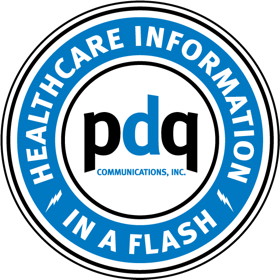When it comes to connecting with healthcare professionals (HCPs), email marketing remains a...
Email continues to be a cornerstone of healthcare marketing strategies, providing a reliable and effective way to reach healthcare professionals (HCPs). It remains a preferred method for sharing vital information, fostering professional relationships, and driving engagement within the healthcare sector.
Whether the latest research, product updates and offers, or invitations to educational webinars, email helps marketers cut through the noise and reach HCPs in a way that respects their time and appeals to their professional interests, while leading them through essential engagement platforms.
Advantages of Utilizing Email Campaigns to Reach Healthcare Providers
The importance of email marketing resides in its ability to deliver personalized, relevant content directly to the inboxes of HCPs. In a field where time is a precious commodity, it offers the convenience and accessibility that busy professionals need.
According to clinical research and analytics provider IQVIA, email marketing remains crucial for effectively engaging HCPs, and prioritizing personalization, consistent messaging, and audience segmentation drives higher engagement rates, particularly in targeted campaigns.
Email marketing excels in tracking and measuring engagement—providing real-time insights into how healthcare providers interact with content. This enables healthcare organizations to refine their strategies, optimize content, and improve overall effectiveness.
Best Practices to Maximize Your Email Strategy
By refining content, timing, and audience segmentation, you can significantly improve engagement rates and drive better results.
The best strategy not only enhances communication, but strengthens your overall marketing efforts to help ensure your messaging always reaches the right audience at the right time.
Targeting & Segmenting Your Audiences
Identifying your ideal HCP market through extensive research is vital to developing campaigns that resonate with specific healthcare professionals, driving better results, and improving ROI. Understanding factors such as healthcare specializations, prescribing habits, demographics, and location enables you to tailor messaging that meets the unique needs of each segment.
Audience segmentation is also key to optimizing outreach. Organizing your audience based on specialties, demographics, behaviors, and preferences helps you create personalized content that boosts engagement and conversions. Segmentation can go beyond these basics to include behavioral data, such as how recipients have interacted with your campaigns or website. For example, HCPs who have clicked on links related to diabetes medication in previous messages are likely fantastic recipients for more detailed information about new treatments or treatment tips in subsequent communications.
Divide your contact lists into targeted segments to deliver more relevant content that resonates with each specific group, ultimately improving engagement.
Navigating Data Security and Spam Filters
Maintaining compliance with the U.S. Health Insurance Portability and Accountability Act (HIPAA) and European Union’s General Data Protection Regulation (GDPR) is pivotal for healthcare marketers.
HIPAA's Security Rule mandates that healthcare organizations use both technical and non-technical safeguards, such as encryption and secure storage, to secure electronic protected health information (ePHI) from unauthorized access. Meanwhile, GDPR requires explicit consent from recipients before using their personal data for marketing, necessitating clear opt-in processes and the ability to easily withdraw consent. Adhering to these regulations ensures compliance and fosters trust by respecting individuals' privacy preferences.
With advanced algorithms, email service providers (ESPs) are increasingly adept at filtering out messages that may appear suspicious or irrelevant, leading to legitimate communications being mistakenly categorized as spam. This can severely hamper your ability to reach HCPs, as your messages may never make it to their inboxes.
Maintaining a clean and updated email list is imperative. Remove inactive or invalid email addresses regularly to reduce the risk of bounces, which can negatively affect your sender reputation. Be sure to craft subject lines and content that are clear, relevant, and free of spammy language or excessive punctuation, as these are common triggers for spam filters.
Streamlining Your Campaigns With Automation
Automation is a game-changer for healthcare marketers, streamlining campaign deployments while ensuring consistent and timely communication. One of the primary benefits is its ability to handle repetitive tasks, freeing up valuable time for marketers to focus on more strategic activities.
This not only reduces the manual workload but elevates personalization efforts. By utilizing data from previous interactions, automated systems can deliver messages based on each recipient's specific interests, behaviors, and positions along the sales funnel, leading to more meaningful and impactful communications.
Such personalization increases engagement rates, as HCPs are more likely to interact with content that directly addresses their professional needs. Another impactful advantage of automation is the deployment of so-called ‘echo’ campaigns, in which secondary sets of emails are sent to those who hadn’t opened the initial—significantly increasing open rates and ROI.
Integrating Email Within Your Broader Marketing Strategy
Utilized on its own, email is an invaluable resource for reliably connecting with your audience, yet it also complements and amplifies the effectiveness of other marketing channels.
Taking a holistic, omnichannel approach ensures your campaigns are not isolated, and work together seamlessly to create a cohesive brand experience.
Aligning with these other channels helps organizations maintain a consistent message and interact with audiences in a more personalized and impactful manner.
Data collected from your campaigns provides valuable insights that can enhance other marketing efforts. Analyzing metrics such as open and click-through rates creates a clearer picture of audience preferences and behaviors. This can be used to refine messaging across various channels.
Testing Your Content & Deployment Strategies
Maximize the effectiveness of your campaigns by continuously testing and refining content and deployment strategies. A/B testing is particularly valuable in determining the best subject lines, messaging, and send times for your audience.
Experimenting with different approaches and analyzing the results provides insights into what resonates most with your recipients—leading to higher open rates andclick-through rates. Regularly assessing and adjusting your strategy ensures your messaging remains relevant and impactful, helping you to stay ahead in a competitive healthcare market.
PDQ Communications Enhances Your Email Marketing Reach and Impact
Leverage the power of email marketing in your healthcare communications by enlisting an experienced HCP marketing partner such as PDQ Communications.
Our strategic email deployment tactics include our Echo add-on, which can complement any campaign—dramatically enhancing open rates and boosting ROI by automatically resending emails to those who did not open the initial set within five to seven business days.
We provide end-to-end support for your HCP campaigns, from strategic planning and execution to in-depth analysis. Our approach ensures that your marketing efforts are not only well coordinated, but drive measurable results.
Download Our Contact Count Catalog Today
We have access to millions of healthcare providers across every specialty and will work closely with you to develop impactful messaging tailored to each audience segment.
Contact PDQ Communications today to elevate your marketing strategies and drive long-term success.








